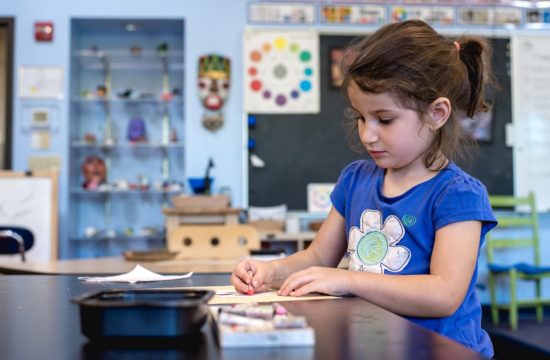FSMN’s multicultural goals are also supported through exposure to the arts of diverse cultures and the artistic achievement of individual artists.
Six Guiding Principles of Arts Education at FSMN:

- Experiential. Active, hands-on, concrete experience is the most effective method of arts education. Students are immersed in the most direct experience possible.
- Holistic. Children learn best when they encounter whole ideas, events, and materials within a purposeful context. Understanding the integral role the arts have both in history and in human culture enhances appreciation.
- Authentic. Real, rich, complex ideas and materials are at the heart of the curriculum. Whenever possible, students’ interests are incorporated into classroom activities. This may lead to spontaneous changes in studies and influence curriculum.
- Expressive. To develop expressiveness students must be involved in meaningful arts experiences. Many opportunities are provided throughout the arts curriculum for students to share their work with a variety of audiences.
- Collaborative. Cooperative learning in the arts is more effective than competitive and star-centered approaches. Students’ skills are enriched through collaboration with other students and across classroom grade levels and curriculum areas.
- Challenging. Students learn best when faced with genuine challenges, choices, and responsibilities in their learning, and when their efforts to achieve are supported.


